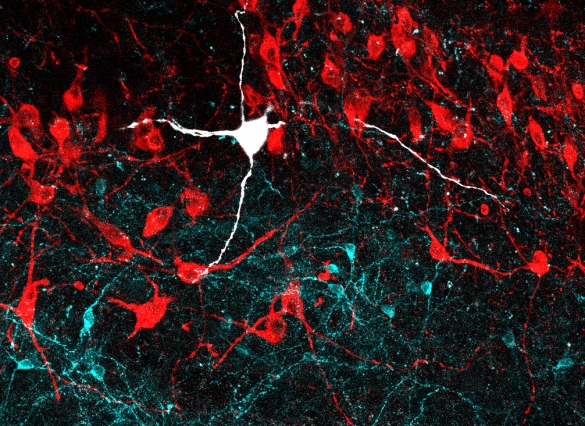[Source: MIT News | David Orenstein | Picower Institute for Learning and Memory | January 15, 2019]
The big day has come: You are taking your road test to get your driver’s license. As you start your mom’s car with a stern-faced evaluator in the passenger seat, you know you’ll need to be alert but not so excited that you make mistakes. Even if you are simultaneously sleep-deprived and full of nervous energy, you need your brain to moderate your level of arousal so that you do your best.
Now a new study by neuroscientists at MIT’s Picower Institute for Learning and Memory might help to explain how the brain strikes that balance.
“Human beings perform optimally at an intermediate level of alertness and arousal, where they are attending to appropriate stimuli rather than being either anxious or somnolent,” says Mriganka Sur, the Paul and Lilah E. Newton Professor in the Department of Brain and Cognitive Sciences. “But how does this come about?”
Postdoc Vincent Breton-Provencher brought this question to the lab and led the study published Jan. 14 in Nature Neuroscience. In a series of experiments in mice, he shows how connections from around the mammalian brain stimulate two key cell types in a region called the locus coeruleus (LC) to moderate arousal in two different ways. A region particularly involved in exerting one means of this calming influence, the prefrontal cortex, is a center of executive function, which suggests there may indeed be a circuit for the brain to attempt conscious control of arousal.
“We know, and a mouse knows, too, that to counter anxiety or excessive arousal one needs a higher level cognitive input,” says Sur, the study’s senior author.
By explaining more about how the brain keeps arousal in check, Sur said, the study might also provide insight into the neural mechanisms contributing to anxiety or chronic stress, in which arousal appears insufficiently controlled. It might also provide greater mechanistic understanding of why cognitive behavioral therapy can help patients manage anxiety, Sur adds.
